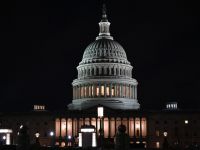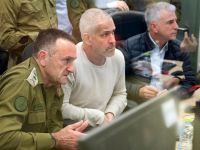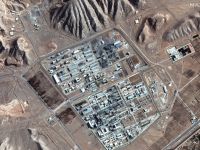With new elections possible in the spring, Israel's right-wing opposition is plotting its campaign to topple Prime Minister Ehud Barak, whose government has crumbled over his peace policies with the Palestinians.
"I think we are heading towards elections in the spring," Uzi Baram, a senior member of Barak's Labor party said Wednesday amid a flurry of political maneuvering by the prime minister's opponents.
Baram, a member of the Israeli team at the failed Camp David peace summit, said he hoped Barak could in the meantime reach an accord with the Palestinians which would be put to the Israeli public at the polls.
"While the Prime Minister has survived censure motions, he has the legitimate right to lead the negotiations and I believe he is very close to reaching an agreement," he added, while cautioning there were still problems to be resolved.
The Camp David negotiations broke down last month after two weeks with both sides at an impasse over the fate of Jerusalem, the thorniest question to be resolved ahead of a looming September 13th.
Barak was elected in a landslide in May 1999 for a four-year term but his government has collapsed following the departure of three right wing and religious parties last month, including the powerful ultra-Orthodox Jewish Shas party, in protest at his concessions to the Palestinians.
With the Israeli parliament in recess until the end of October, Barak has less than three months to form a new government while efforts by the right-wing to oust him from power gather pace.
MPs last month set the ball rolling by backing a bill for early elections, but it is unlikely to be discussed further until parliament returns and in any case must go to committee and through another three readings before becoming law.
Accused by his political opponents of concentrating on peace with Israel's Arab neighbors and ignoring the country's economic and social ills, Barak was meeting with his Finance Minister Avraham Shohat on the 2001 budget.
"It will not be an electioneering budget. It must allow growth while narrowing the social divides," he said.
Barak has also faced a furore over his shake-up of the foreign ministry following Minister David Levy's resignation after he announced he would be replacing the ministry's top civil servant and a string of ambassadors.
The knives are out in the opposition circles. Ariel Sharon, the leader of the biggest opposition party Likud, on Tuesday met with two of Barak's former ministers, Levy and Yitzhak Mordechai, to discuss ways of toppling the government.
Levy quit last week as foreign minister saying he could not accept Barak's apparent willingness to compromise on Jerusalem, which he insisted must remain Israel's united eternal capital.
Mordechai, who like Levy also served under former Likud Prime Minister Benjamin Netanyahu, was forced to resign in May after police charged him with sexual assault against several women subordinates.
Barak also met Mordechai on Tuesday, his office said.
And amid widespread speculation of a political comeback, Netanyahu was also reported to have met earlier this week with Eli Yishai, the political leader of the powerful ultra-Orthodox Shas party
Opinion polls show Netanyahu faring better than Sharon against Barak, although he faces possible criminal prosecution over allegations of fraud and corruption during his three years in office.
A justice ministry spokesman said Sunday that it would be several weeks before a decision was made on whether to charge Netanyahu and his wife Sara.
They are alleged to have illegally kept valuable gifts received during his three years in office and of promising a Jerusalem contractor he would be paid out of the public purse for work done on their private home – OCCUPIED JERUSALEM (AFP)
© 2000 Al Bawaba (www.albawaba.com)







